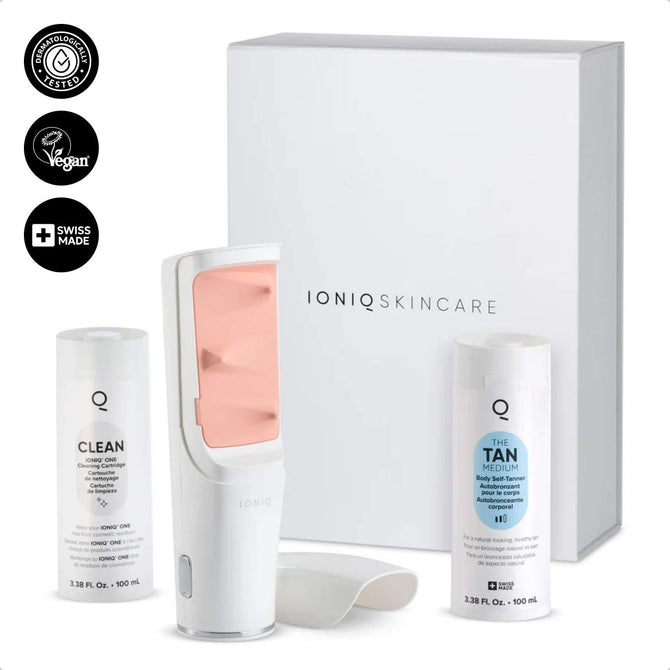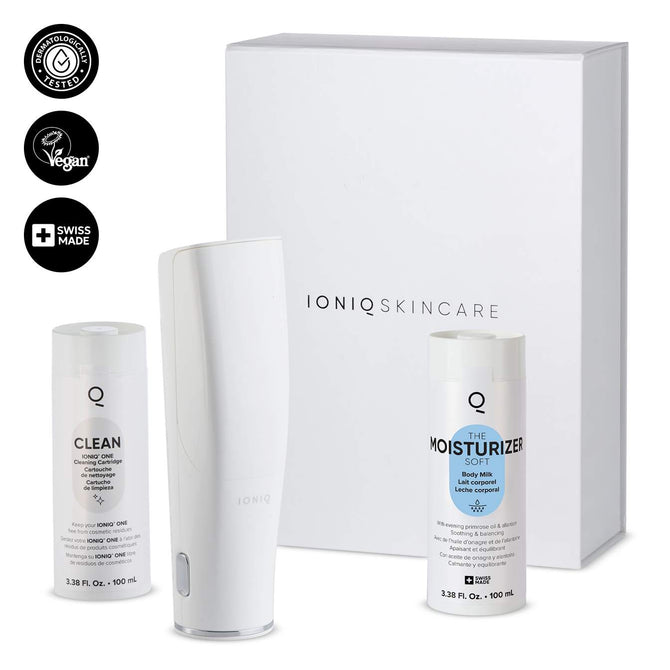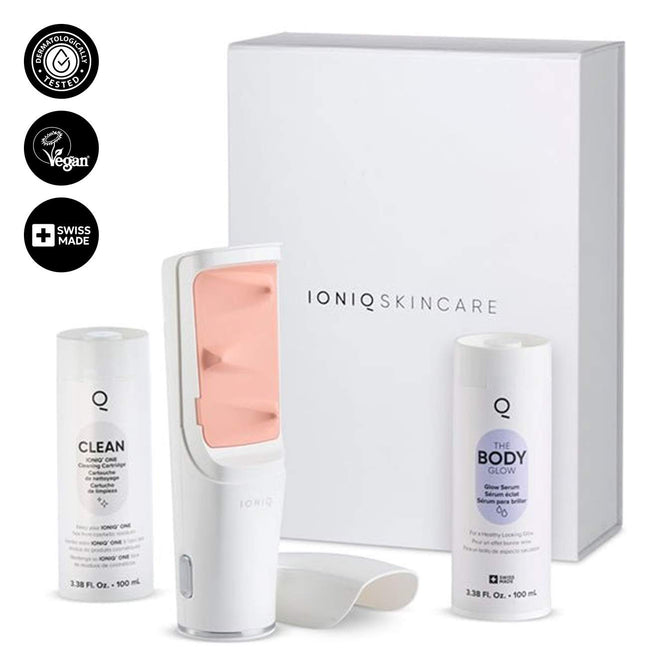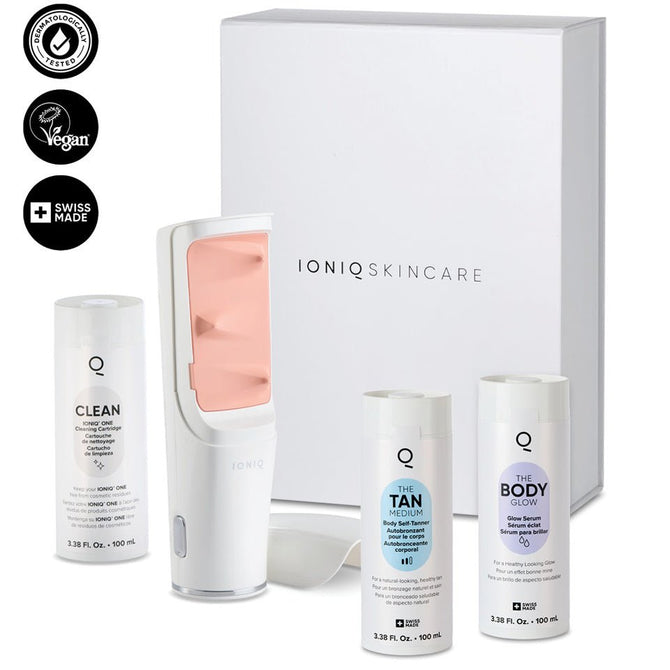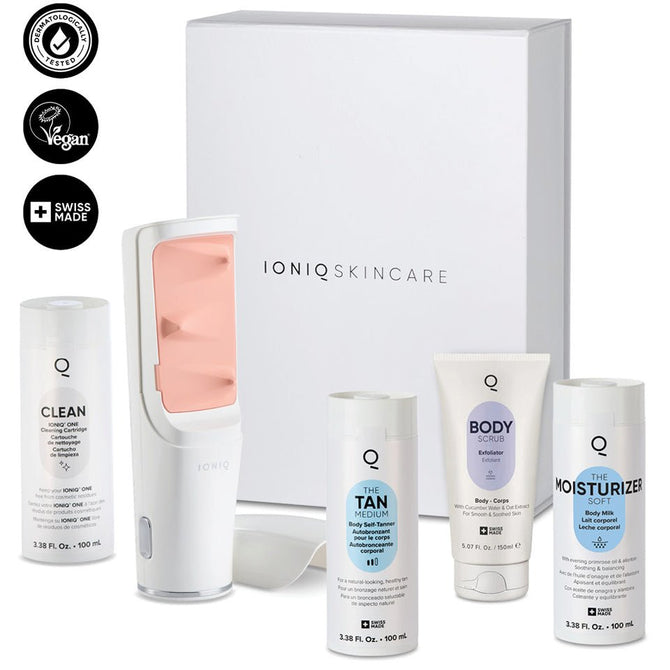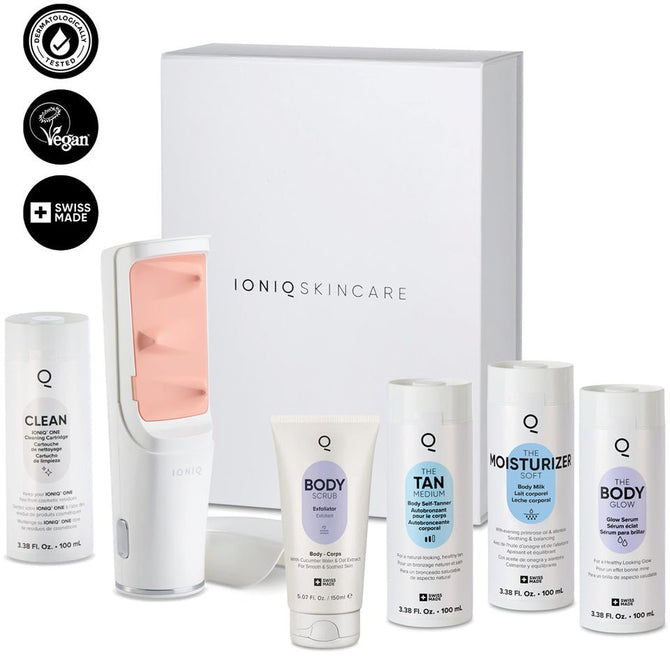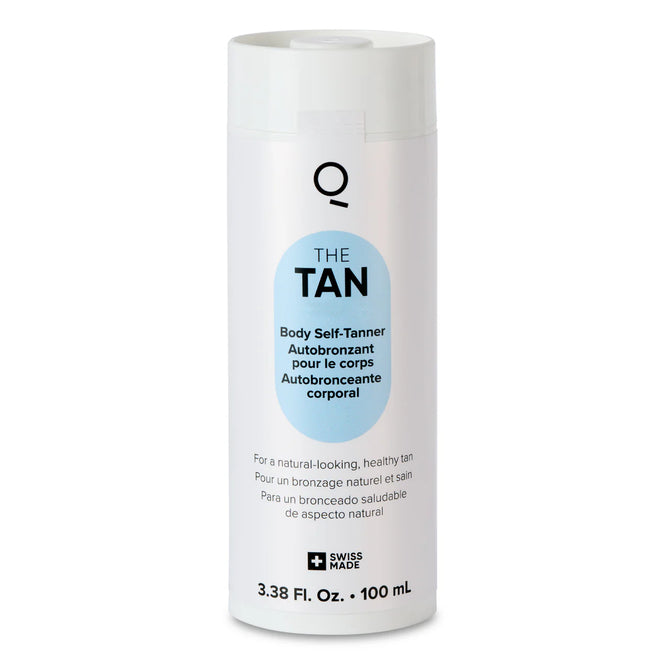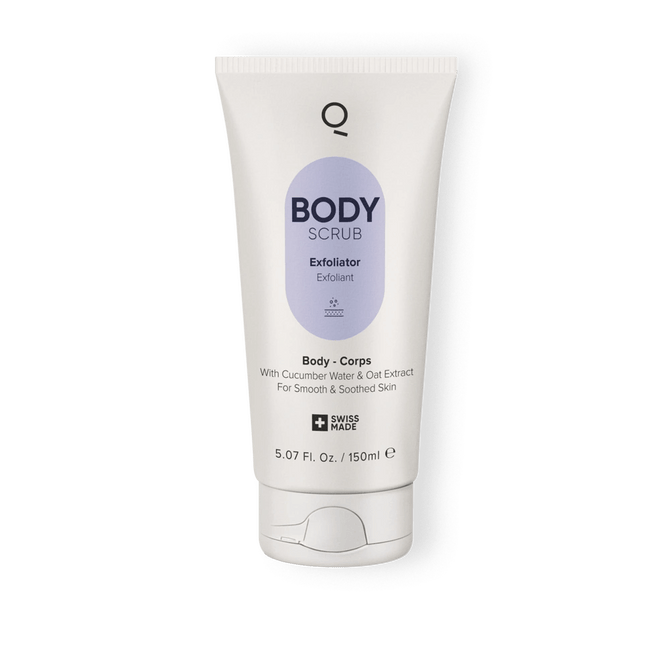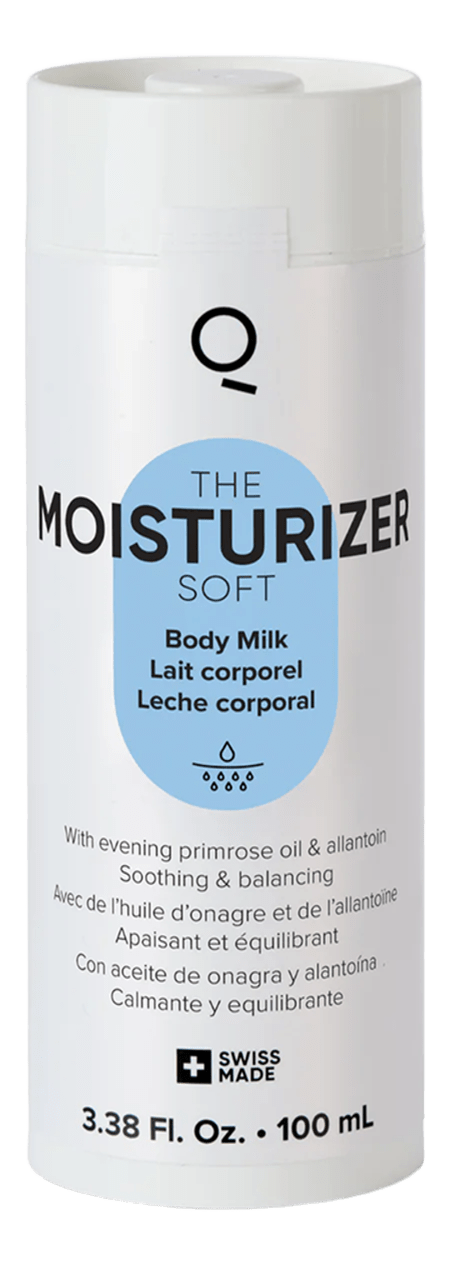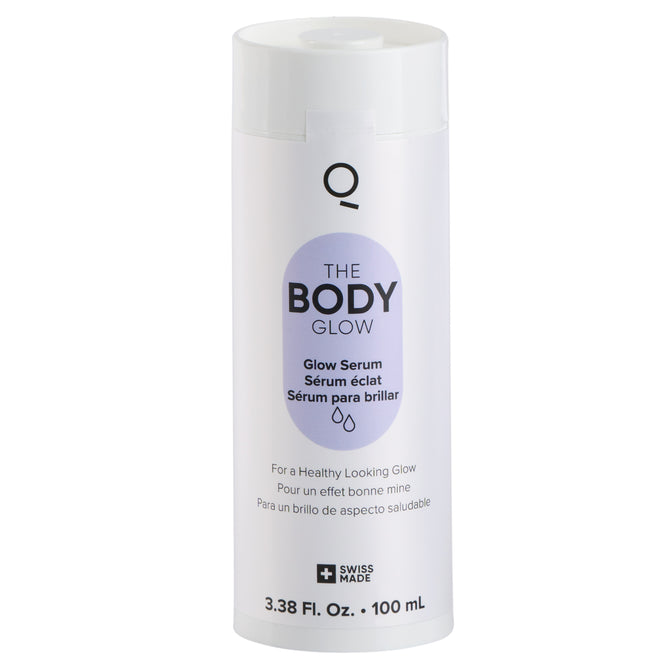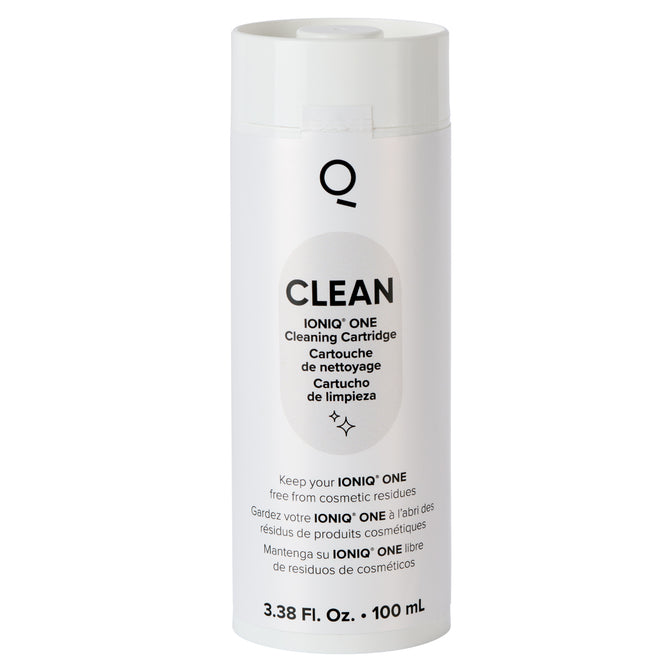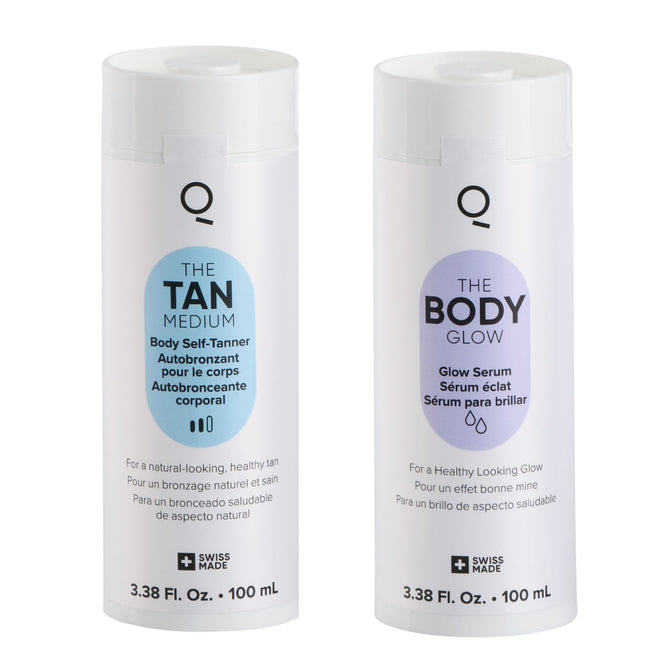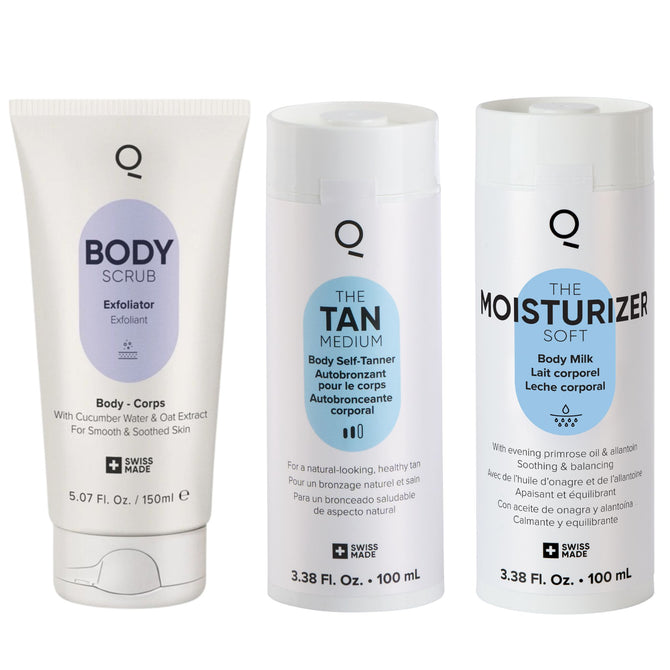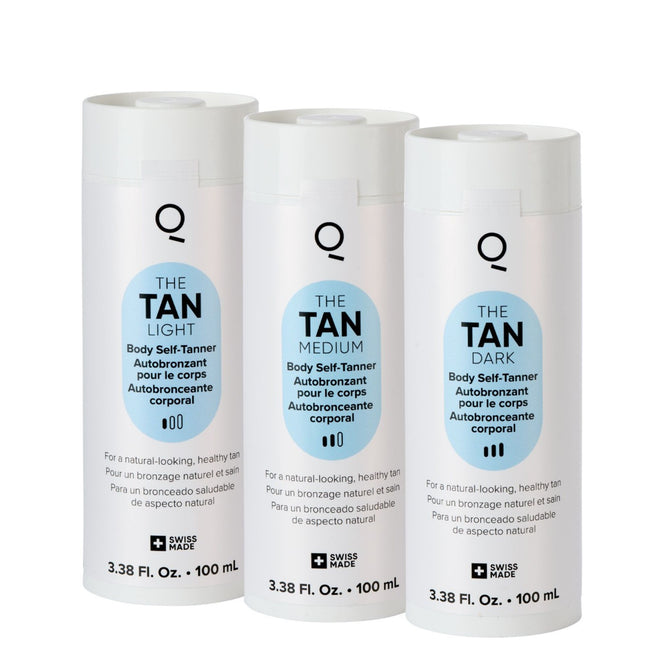
Tanning booths have been around for decades, but figuring out how to use a tanning booth safely and effectively isn’t as simple as stepping in and closing the door. With UV risks, skin type considerations, and costs involved, knowing the right approach matters. Whether you're new to UV tanning or just want a refresher, this guide breaks down everything from how to stand in a tanning booth to how long it takes to get a tan in a tanning booth. We'll also show you why many people are choosing high-tech at-home options instead of spending time and money at tanning salons.
What Is a Tanning Booth?
A tanning booth is a vertical or horizontal unit equipped with UV lamps that emit ultraviolet radiation to darken your skin. It mimics sun exposure in a controlled space, either standing or lying down, depending on the model. Sessions typically last anywhere from 5 to 15 minutes, depending on your skin type and desired results.
Why This Guide Matters
Despite their popularity, tanning booths come with risks that many users underestimate. Misuse can lead to burns, uneven color, and long-term skin damage. This guide aims to answer common questions like "how long does it take to get a tan in a tanning booth?" and "how often can I tan in a tanning booth?" while comparing them to smarter, safer alternatives like the IONIQ ONE Sprayer + TAN, an at-home spray tan system.
Tanning Booth Basics
If you’re thinking about trying a tanning booth, here are some essentials:
- Sessions last 5–15 minutes
- You’ll either stand or lie in a unit filled with UV lamps
- Most salons recommend 1–3 sessions per week
- Protective eyewear is a must
- Costs add up over time (typically $20–$40 per session, not including travel or tip)
Annual salon tanning can cost between $620-$1000, factoring in average prices, transportation, and additional expenses. Compare that to a single, one-time investment in IONIQ ONE Sprayer, an at-home spray tan machine — a smart, cordless, and self-cleaning at-home tanner that gives you a full-body tan in under 3 minutes—no travel required.
<!-- split -->
How Tanning Booths Work
Tanning booths use UVA and UVB rays to stimulate melanin production in your skin. When your skin is exposed to these rays, it responds similarly to being out in the sun. But unlike natural sunlight, booth exposure is condensed into a few minutes and more intense. This high-intensity exposure is part of how users must be cautious. Skin can burn quickly without proper prep, and results often vary. In contrast, the IONIQ ONE Sprayer + TAN uses wrap-around mist coverage for a controlled, even, and streak-free tan without exposing your skin to UV radiation at all.
Types of Tanning Booths (Stand-Up vs. Lay-Down)
There are two main types:
- Stand-Up Booths: You stand upright, usually holding handles to expose all angles. Some users prefer these for hygiene and mobility.
- Lay-Down Beds: You lie on a glass surface while UV lamps tan you from above and below. These are often more relaxing but may cause pressure points and uneven color on the back.
Both types struggle with hard-to-reach spots and uneven coverage, especially along your sides, underarms, or neck. The IONIQ ONE Sprayer + TAN uses Magnetic Skin Technology to detect and coat every inch of your skin—even the spots most booths miss.
Tanning Booth vs. Spray Tan vs. Sun Exposure
Let’s compare:
- Tanning Booths: Quick, expensive over time, and UV-related risks.
- Spray Tans (Salon): Less UV risk but still requires appointments, commuting, and cleanup.
- Sun Exposure: Free, but unpredictable and weather-dependent, with high UV exposure risk.
An at-home solution like IONIQ combines the convenience of spray tanning with the privacy of home use. No appointments, no travel, no mess.
The Downsides of Using a Tanning Booth
While some people use tanning booths for their speed and convenience, the downsides are hard to ignore.
Convenience and Speed
Booths are marketed as quick solutions, but they involve:
- Booking appointments
- Commuting
- Waiting in line
- Post-session cleanup
Even Coverage
Tanning booths often miss certain areas, especially:
- Sides of the body
- Underarms
- Back of knees and neck
IONIQ’s 360° mist technology ensures even, full-body coverage in every session.
Controlled Environment
Salons claim booths offer a "controlled" UV setting, but:
- Results can still vary by skin type
- Some areas tan faster than others
- Risk of overexposure remains
Vitamin D Production (Myth vs. Reality)
Tanning booths are often (wrongly) promoted as a way to boost vitamin D. Reality check:
- Most people get enough vitamin D through diet or supplements
- The risk of skin cancer outweighs any minor boost in vitamin D
If vitamin D is your goal, stick to safer sources.
Risks and Safety
Considerations
How tanning booths pose serious health risks is often downplayed—but the dangers are real.
UV Exposure and Skin Damage
- Accelerates aging
- Promotes sunspots and wrinkles
- Can cause skin to dry out and peel
By contrast, IONIQ's skin-friendly, vegan formula hydrates while tanning, helping you avoid these issues altogether.
Cancer Risks
- Multiple studies show an increased risk of melanoma and other skin cancers from tanning booth use
- Risk is higher with frequent use
Choosing an at-home, UV-free solution removes that risk entirely.
Eye Protection Importance
Neglecting proper eye protection can lead to:
- Photokeratitis (like a sunburn on your cornea)
- Long-term vision issues
Who Should Avoid Tanning Booths
- People with very fair or sensitive skin
- Those on photosensitive medications
- Anyone with a history of skin cancer
How tanning booths pose serious health risks is often downplayed—especially for those who use photosensitive medications.
Preparation Before Your Tanning Booth Session
Getting a tan in a tanning booth isn’t just about hopping in and turning on the lights. Here’s how to get ready.
Choosing the Right Tanning Salon
Not all salons are the same. Look for:
- Clean facilities with good ventilation
- Certified staff and proper licensing
- High-quality, well-maintained equipment
Don’t forget to check reviews or ask for recommendations. But remember, finding and commuting to a trusted salon adds time and cost. Moreover even if you pick a clean tanning salon with all the right paperwork, there's no guarantee of 100% safety.
That’s a non-issue with the IONIQ ONE Sprayer, which you can use wherever you are—even on the go. It is your own personal device—it's hygienic and just for you.
Skin Type Assessment and Fitzpatrick Scale
Understanding your skin type is critical. The Fitzpatrick scale helps identify how likely your skin is to burn or tan:
- Type I: Very fair, always burns
- Type II: Fair, usually burns, tans minimally
- Type III: Medium, sometimes burns, tans gradually
- Type IV: Olive, rarely burns, tans well
- Type V-VI: Brown to black skin, tans deeply
Most tanning salons do this assessment before your first session. How your skin reacts to UV light matters.
What to Wear (or Not Wear)
You can wear a swimsuit, underwear, or go fully nude. Just know that anything you wear can leave tan lines. Also:
- Remove all jewelry
- Avoid tight clothing that can leave marks after the session
Pre-Tan Skin Care
To prep your skin: don’t wear lotion, perfume, deodorant, or makeup right before.
With IONIQ, there's no need to wax or scrub before treatment. It works smoothly on your natural skin—no prep, no mess. Just pick it up and go. It’s fast, easy, and fits right into your routine without the hassle.
Medications and Photosensitivity Risks
Some medications can increase your skin's sensitivity to UV rays, including:
- Antibiotics
- Acne treatments
- Birth control pills
Always check with your doctor if you’re unsure.
<!-- split -->
Step-by-Step: How to Use a Tanning Booth
Check-In and Consultation
Once you arrive at the salon:
- Check in with reception
- Fill out any required forms
- Discuss your goals and skin type with the staff
How salons determine session length based on your skin’s sensitivity can feel restrictive and time-consuming.
Undressing and Preparing in the Tanning Booth
- Remove your clothing and jewelry
- Apply barrier cream to sensitive areas (palms, nails, etc.)
- Put on protective eyewear
When salons move quickly through prep in small booths, it can sometimes make the experience feel a bit rushed and less comfortable.
Proper Use of Eye Protection
Always wear the goggles provided by the salon. UV rays can cause serious eye damage in just minutes. The IONIQ ONE Sprayer + TAN? No UV rays. No prep. No goggles. No worries.
Positioning for Even Tanning in a Tanning Booth
In a stand-up booth:
- Spread arms slightly
- Rotate slowly every few seconds
- Keep knees slightly bent
In a lay-down bed:
- Lie flat, arms at sides
- Flip halfway through (if needed)
Even with perfect posture, it’s easy to miss spots. That’s where IONIQ’s magnetic mist really shines—it senses and covers your curves for complete, spot-free tanning.
Session Duration Guidelines by Skin Type
- Type I: 3-5 minutes max (with caution)
- Type II: 5-7 minutes
- Type III: 7-10 minutes
- Type IV-VI: 10-15 minutes
Always start small and increase gradually. IONIQ eliminates this guessing game by giving you consistent results every time, regardless of skin type.
What Happens During the Session
- UV lamps turn on automatically
- You remain still (or rotate, if instructed)
- Session ends with a timer or automatic shutoff
Once done, you'll dress and head out.
Post-Tanning Booth Etiquette
- Wipe down the booth or bed if required
- Return goggles or other gear
- Wash your hands to avoid color buildup
Aftercare and Maintenance
Proper aftercare is key to maintaining your tan, regardless of how you got it.
Moisturizing Tips
Tanning dries out the skin, especially from UV exposure. After your session:
- Apply a fragrance-free, hydrating moisturizer
- Use aloe vera or hyaluronic acid-based products
- Avoid alcohol-based lotions
How tanning booths can dry out your skin is often overlooked. IONIQ’s tanning formula already contains aloe to help your skin stay hydrated from the start. Use it instead of a tanning booth for a glow that looks good and feels even better.
Shower Timing
Wait at least 2–4 hours after your booth session before showering. Some salons recommend waiting longer, depending on your skin. IONIQ develops naturally in 6–8 hours and doesn’t require any setting time or awkward sticky feeling. Just spray and go.
How to Extend Your Tan
To keep your color longer:
- Moisturize daily
- Avoid long, hot baths or chlorinated pools
- Pat dry with a towel (don’t rub)
Reapplying IONIQ takes just minutes and is mess-free, making tan maintenance simple and convenient.
Managing Peeling or Dry Skin
Peeling usually means skin damage from UV exposure. To reduce it:
- Exfoliate gently with a soft cloth, not harsh scrubs
- Apply a rich moisturizer after showering
- Stay hydrated
Tanning Frequency and Scheduling
Understanding how often you can tan in a tanning booth is essential for both safety and results. Overuse increases your risk of skin damage, while underuse may not maintain your desired look.
How Often Should You Tan?
Most tanning salons recommend:
- 1–3 sessions per week when starting
- Always wait at least 48 hours between sessions
- Avoid more than 3 sessions per week, especially for lighter skin types
How frequent tanning booth sessions expose your skin to UV can accelerate aging and increase cancer risk. To build a base tan:
- Start with 2–3 short sessions per week for 2–3 weeks
- Gradually increase time, based on skin reaction
- Use moisturizers between sessions
Maintenance Tanning Schedule
To maintain your tan:
- Reduce to 1–2 sessions per week
- Keep up with aftercare and hydration
- Monitor skin for any signs of irritation or uneven tone
How tanning booths require constant appointments and time-consuming prep makes maintenance a hassle. Use IONIQ instead—each cartridge lasts 2–3 full-body sessions and is perfect for weekly touch-ups, making tan maintenance simple and stress-free.
When to Take a Break
Even the most experienced tanners need a break:
- After 4–6 weeks of consistent booth use, pause for at least a week
- Monitor for skin dryness, discoloration, or sensitivity
- Use this time to exfoliate and moisturize
How tanning booths expose you to cumulative UV stress means you need to take breaks for safety, not just preference.
Common Mistakes to Avoid
Even seasoned tanners make missteps. These mistakes can lead to burns, blotchy results, or long-term skin damage.
Over-Tanning
Tanning too frequently causes:
- Skin dehydration and peeling
- Faster aging and wrinkle formation
- Higher skin cancer risk
Sticking to a safe schedule matters. Or skip the UV stress entirely and go with IONIQ, which lets you tan as needed without harming your skin.
Skipping Eye Protection
Not wearing proper goggles can lead to:
- Eye irritation or sunburned corneas
- Blurred vision or long-term damage
Ignoring Skin Type Advice
Tanning booths aren’t one-size-fits-all. Ignoring your skin’s sensitivity can lead to burns or uneven results. Always follow guidelines based on your Fitzpatrick skin type.
Tanning with Certain Products On
Going into a booth with makeup, lotion, or perfume on can cause:
- Uneven tanning
- Skin irritation
- Staining from product interaction with UV
<!-- split -->
Tanning Products to Use With Booths
Choosing the right products can make a big difference in the outcome of your tanning session. But some can do more harm than good. How tanning booth products vary in quality can seriously impact your skin—some may even do more harm than good. Use IONIQ for a safer, more consistent experience with a formula designed to deliver great results without the risk.
Accelerators vs. Bronzers vs. Tingle Lotions
- Accelerators: Speed up melanin production; good for building a base tan
- Bronzers: Provide instant color; can stain clothes and sheets
- Tingle Lotions: Increase blood flow to the skin; not recommended for sensitive skin
Each has pros and cons, but booth users often struggle with uneven application or skin irritation.
Ingredients to Look For and Avoid
Look for:
- Aloe vera
- Coconut oil
- Hyaluronic acid
Avoid:
- Alcohols
- Mineral oils
- Artificial dyes or fragrances
How tanning booth products often contain harsh chemicals can be a hidden risk to your skin.
Product Application Tips
- Apply products evenly to avoid streaks
- Wash hands immediately after application
- Use barrier cream on nails, palms, and dry spots
How tanning booths often require rubbing, blending, and guesswork can make the process messy and uneven.
FAQs About Tanning Booths
Still have questions? Here are straight answers to some of the most common ones.
Is Tanning in a Tanning Booth Safe?
Tanning in a booth exposes your skin to UV radiation. Even short sessions increase the risk of:
- Skin cancer
- Premature aging
- Eye damage (if not protected)
Safe? Not really. That’s why more people are switching to UV-free options like IONIQ, which offers consistent color without the health risks.
Can You Tan Naked?
Yes, you can. Many people do this to avoid tan lines. Just remember:
- The skin in covered areas is more sensitive and may burn faster
- Hygiene and comfort should be considered
IONIQ gives you 100% even coverage without the need to strip down in public or risk awkward tan lines.
How Long Does a Booth Tan Last?
A typical booth tan lasts 5 to 7 days, depending on your skin and aftercare.
- Dry skin fades faster
- Regular moisturizing helps maintain color
IONIQ results last 7–9 days, and reapplication takes only minutes. Plus, no risk of patchy fade-out or peeling.
Are Tanning Booths Better Than Beds?
Booths offer:
- Faster, more even exposure
- Less contact with surfaces
Beds may feel more relaxing, but both use UV light and come with the same risks. The better question? Why choose either when IONIQ gives you a faster, cleaner, safer tan at home?
Alternatives and Add-Ons
Looking for more options or enhancements? Here's how tanning booths compare to other popular methods and tech upgrades.
Combining Booth Tanning With Spray Tanning
Some users alternate between booth and spray tans to maintain color while minimizing UV exposure. But combining both:
- Requires even more salon visits
- Increases product and service costs
- Adds to your skin's workload
IONIQ combines both benefits—natural-looking color, full-body coverage—without UV, appointments, or layering multiple methods.
Red Light Therapy and Skin Rejuvenation
Red light therapy is often offered as an add-on for:
- Stimulating collagen
- Reducing fine lines
- Improving skin tone
But it’s often pricey and time-consuming. The IONIQ ONE Sprayer + TAN focuses purely on tanning but uses a skin-friendly, aloe-based formula that keeps skin calm and hydrated without extra steps.
At-Home Tanning Booths
Some try home tanning beds or booths, but these:
- Cost thousands to install
- Require dedicated space
- Still use UV radiation
How tanning booths tie you to a fixed location, messy setup, and long sessions can make tanning feel like a chore. Use IONIQ instead—it's portable, splash-proof, cordless, and delivers a full-body tan in just 3 minutes. No installation. No UV. No hassle.
Legal and Regulatory Info
Before you use a tanning booth, it’s important to know the rules. Regulations vary depending on where you live, and they exist for a reason: to protect your health.
Age Restrictions
Many regions restrict indoor tanning based on age:
- In the U.S., most states ban tanning booth use for anyone under 18 without parental consent
- Some countries, like Australia and Brazil, have banned commercial tanning beds altogether
With IONIQ, there are no age restrictions. It’s a UV-free solution that can be used safely at home by adults.
State and Country Regulations
Salon operations are governed by local laws, including:
- Maximum UV intensity allowed per session
- Mandatory eye protection use
- Required warning signs and consent forms
These rules are necessary due to UV risk. IONIQ users skip the red tape entirely while staying safe at home.
Salon Licensing Standards
Legitimate tanning salons should have:
- Health and safety certifications
- Regular equipment inspections
- Trained, licensed staff
Even then, salons vary widely in quality. IONIQ ensures professional-level results every time, without needing to rely on external businesses.
<!-- split -->
Conclusion
Smart, Safe Tanning Habits
Tanning doesn't have to mean risking your skin. If you use a tanning booth, follow these smart habits:
- Limit frequency and session time
- Always wear eye protection
- Understand your skin type
- Moisturize and hydrate after every session
But the safest move? Skip the UV exposure altogether. The IONIQ ONE Sprayer + TAN offers a faster, smarter, and cleaner way to get glowing skin—no appointments, no radiation, no compromises. IONIQ gives you control, convenience, and consistent color—without the risks that come with traditional booths.

